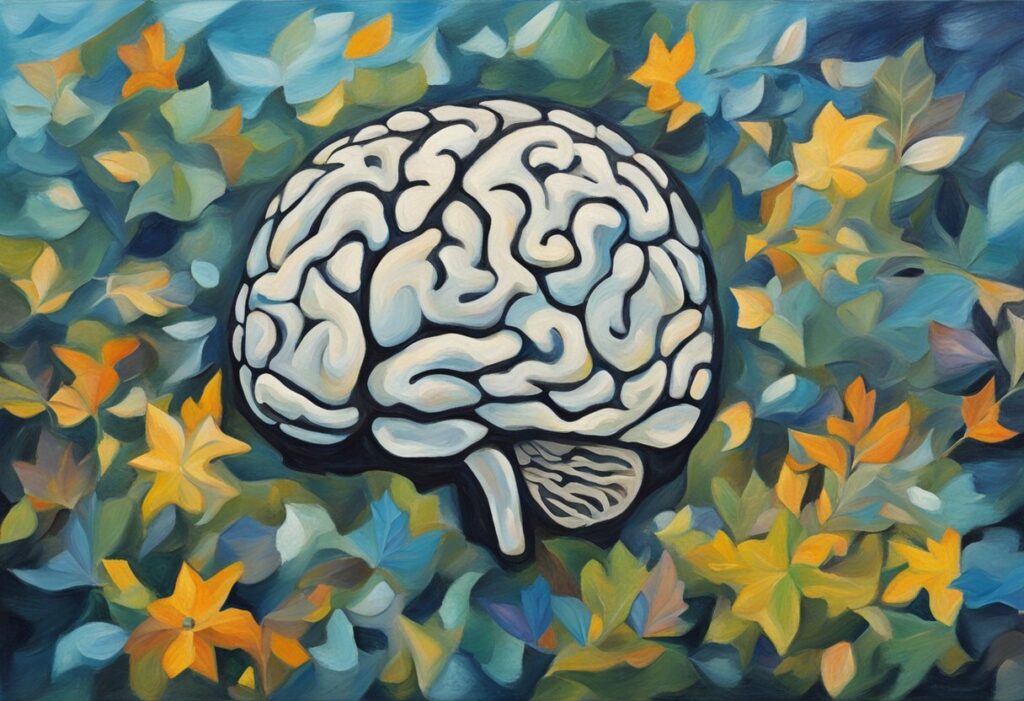Enhancing Clarity for Cancer Thrivers
Navigating life after cancer can be as challenging as the treatment itself, especially when it comes to fatigue and cognitive function. Many of us who have thrived through cancer battles experience a profound tiredness that doesn’t always resolve with rest.
This fatigue can persistently impact our daily activities, work, and relationships.
Combined with the cognitive demands of life, our abilities to concentrate, remember, and process information can be significantly affected, leaving us feeling mentally foggy and unlike our usual selves.
Advances in survivorship reveal that these challenges are not merely side effects to endure; they are aspects of our health that can and should be addressed. The road to reclaiming our mental sharpness involves understanding the underlying biological factors contributing to our fatigue, the cognitive changes we might encounter, and how cancer treatments may play a role.
From this knowledge, we can seek appropriate clinical diagnosis and supportive care to improve our quality of life. Drawing from personal battles and victories helps us foster camaraderie as we share insights, engage in supportive care, and possibly embrace new physical activities that could alleviate some of our fatigue and cognitive difficulties.
Key Takeaways
- Cancer survivors often deal with ongoing fatigue and cognitive challenges.
- Rehabilitation and supportive care can improve the quality of life.
- Physical activity can be a valuable part of managing cognitive fatigue.
Understanding Fatigue in Cancer Survivors

As a community of cancer thrivers, we recognize that fatigue often emerges as a tenacious challenge. Not only does it affect a substantial number of us, but it also leaves a marked imprint on our everyday lives.
Defining Fatigue and Its Prevalence
Fatigue is a common yet complex symptom experienced by cancer survivors. Characterized by a persistent sense of exhaustion unrelated to activity levels, it can be physical and cognitive. Studies indicate that this type of fatigue, specifically cancer-related fatigue (CRF), impacts a significant portion of survivors. A report has illuminated the prevalence of long-term cognitive dysfunction in these individuals, outlining its reach among those treated with cancer therapies.
Casual conversations in our support groups mirror these findings. Many of us have felt laden with fatigue that impacts our daily function. We’ve found camaraderie in sharing how this fatigue often accompanies us long after the treatments have ceased.
The Impact of Fatigue on Quality of Life
The intrusion of fatigue into the lives of those who have dealt with cancer is profound. Our plans, hobbies, and even simple tasks can become formidable. We understand firsthand the toll it takes on our quality of life. For instance, fatigue is a symptom that often goes unaddressed, even though it can be more debilitating than pain or depression, underscoring the gravity of its impact on health-related quality of life.
The effects of CRF become evident in our teams and on the field. The stamina and focus required for sports shed light on the cognitive facets of fatigue. We know it’s not just about physical strength; mental endurance plays a pivotal role in our performance. Thus, we actively seek and discuss interventions that help us stay sharp and engaged.
Table 1: Strategies to Counteract Fatigue
| Strategy | Description |
|---|---|
| Physical Activity | Structured exercises to build endurance and strength. |
| Cognitive Exercises | Activities like puzzles and memory games to sharpen the mind. |
| Nutrition | Balanced diet focusing on energy-rich foods. |
| Restorative Sleep | Quality sleep protocols to enhance rest. |
| Psychological Support | Counseling services and support groups for emotional well-being. |
Altogether, facing CRF with proactive measures is a testament to our resilience. We integrate exercise, like team sports, and mental fitness into our routine, adapting as necessary. Battling cancer is tough; engaging in sports as survivors, we showcase our determination not just to overcome but also to thrive.
Biological Underpinnings and Risk Factors
In our journey through cancer, understanding the biological roots and risk factors of fatigue offers us a map to navigate this common challenge better.
Pathogenesis of Cancer-Related Fatigue
Cancer-related fatigue (CRF) is a multifaceted syndrome with a complex pathogenesis. Studies have shown that cytokines, such as interleukins and tumor necrosis factor, play a significant role in the development of CRF.
These inflammatory markers contribute to an imbalance in the body’s energy allocation and can lead to persistent exhaustion. Our bodies may feel drained as these cytokines alter our metabolism and muscle function, making everyday tasks like a marathon.
Identifying Biomarkers and Anemia
We’ve seen that searching for reliable biomarkers is crucial in understanding and managing CRF. Anemia, a common condition in cancer thrivers like us, is often associated with fatigue. This decrease in red blood cells leads to insufficient oxygen throughout our bodies, perpetuating a fatigue cycle.
By monitoring hemoglobin levels and addressing anemia, we can take decisive steps toward restoring some of our lost vitality. Recognizing these indicators helps us acknowledge our body’s distress signals and equips us with the knowledge to seek targeted therapies.
Clinical Assessment and Diagnosis

When we face the challenge of cancer-related fatigue, it’s crucial to rigorously assess and diagnose this condition to tailor our approach to management. We’re not alone in this; tools and guidelines exist to steer us toward the best possible outcomes.
Assessment Tools and Screening
The first step in tackling fatigue and cognitive issues is a comprehensive assessment. This means using validated tools designed to evaluate the symptoms we may be experiencing. One such method is the Functional Assessment of Cancer Therapy-Cognitive Function (FACT-Cog), which patients can complete to help clinicians gauge the extent of cognitive difficulties.
- Screening: We start by screening for signs of cognitive fatigue; this could be as straightforward as answering questions on frequency and severity.
- Objective Tests: Some situations require more detailed testing, including neuropsychological evaluations.
Through these tests, we’re identifying problems and setting a sturdy foundation for the diagnosis.
National Comprehensive Cancer Network Guidelines
The NCCN Clinical Practice Guidelines in Oncology provide a robust framework for our journey through cancer-related cognitive challenges. These guidelines offer a structured approach for clinicians to assess cancer-related fatigue, emphasizing a thorough evaluation of both subjective symptoms and objective measurements.
- Criteria: They set specific criteria for diagnosis, highlighting required symptoms and their impact on daily life.
- Management Strategies: Once a diagnosis is established, the guidelines chart a course for managing our symptoms, directing us towards interventions to help us regain our strength and mental strength.
With these tools and knowledge, we arm ourselves against the fog that can descend in the aftermath of our cancer triumphs. We focus, strategize, and support one another, men standing strong together, leveraging sport and physical activity as much as medical wisdom in our quest for well-being.
Cognitive Changes in Cancer Thrivers: Attention, Memory, and More

We know that enduring cancer and its treatment comes with various challenges, one of which may be changes in cognitive functioning. This encompasses areas such as memory and attention, which can be significant in our daily lives.
Cognitive Impairment and Performance
We see in ourselves and fellow survivors that the mind sometimes struggles with tasks that once felt routine. Cognitive performance can dip, making complex tasks more strenuous than before. Such cognitive impairments often manifest through neuropsychological tests, reflecting our reduced ability to focus or recall pertinent information. It’s not just forgetfulness – it’s like our brains are trying to tune in to a frequency that keeps drifting out of range.
Strategies like cognitive retraining exercises and brain health activities can prove beneficial in tackling these issues. Activities that enhance mental function, such as chess or puzzles, become pastimes and therapeutic tools. Maintaining a brain-healthy diet, rich in antioxidants and omega-3s, can also support our cognitive well-being.
Chronic vs. Acute Cognitive Changes
The cognitive changes we face could be acute, surfacing during treatment, or chronic, persisting long after treatment. While acute changes might improve with time, chronic cognitive issues can prove more stubborn. We differentiate between the two based on their duration and impact on our survivorship.
Devising a routine that supports our cognitive health can include incorporating moderate exercise like swimming or cycling, which boosts blood flow to the brain and supports cognitive vitality. Our journey is unique, so we acknowledge and listen to our bodies, adapting these strategies to fit our needs and lifestyles.
Cancer Treatments and Side Effects
As survivors, we know cancer treatments are pivotal in battling the malignancy, but they bring their suite of side effects.
Chemotherapy and Radiation Therapy
Chemotherapy and radiation therapy stand as pillars in the fight against cancer. Yet, they come with a cost to our vitality. Chemotherapy can lead to fatigue, making us feel drained of energy. We might struggle with concentration, experience memory lapses, or face challenges in performing daily tasks. Strategies such as short naps and gentle exercise help us regain stamina.
Radiation therapy, on the other hand, may contribute to both physical and cognitive exhaustion. Setting a consistent rest schedule and engaging in mental exercises can enhance our focus and clarity, combating the cognitive haze that often follows treatment sessions.
Surgery and Pharmacologic Interventions
Surgery presents a direct approach to removing cancerous growths from our bodies. The recovery period often requires rest, impacting our daily energy levels. We build resilience by pacing ourselves and slowly introducing physical activity.
With pharmacologic interventions, managing side effects becomes a tailored process. For instance, medications may restore hormonal balance or address pain, yet they may also contribute to weariness. We find balance by discussing our treatment plans with our healthcare team and adjusting them to reduce fatigue and maintain our life’s rhythms.
Routines become our ally in dealing with these treatments. Regular, moderate activity, hobbies, and a nutritious diet bolster our physical and mental well-being. Connecting with others who understand our journey fosters a supportive community where sharing strategies and experiences becomes a beacon of hope and strength.
Supportive Care and Rehabilitation
Supportive care and rehabilitation offer us powerful tools to address cancer-related fatigue and cognitive concerns, equipping us with ways to improve our daily function and quality of life.
Physical Activity and Exercise
Physical activity and exercise stand as pillars in our fight against cancer-related fatigue. Clinically-guided exercise programs have been shown to bolster our physical stamina and mitigate cognitive difficulties. We must engage in a tailored regimen that can include activities like:
- Aerobic Exercise: Walking or cycling to enhance our cardiovascular health.
- Strength Training: Using light weights to sustain muscle mass and support bodily functions.
Research, like the ones found in the PMC article, indicates structured exercise programs lead to marked improvements in overall brain function and fatigue levels.
Cognitive Behavioral Therapy and Psychosocial Support
We don’t face this challenge alone—psychosocial interventions and cognitive behavioral therapy (CBT) form a support network around us. Psychosocial support is crucial in our rehabilitation journey, particularly education on managing symptoms and lifestyle changes. Key components include:
- Group Therapy: Sharing experiences and strategies.
- Stress Management: Techniques like deep breathing and meditation.
Through CBT, we learn to adapt our thought patterns and behaviors to counter the mental fog. Studies, such as the one referenced in the Springer article, affirm the efficacy of these interventions in improving our cognitive outcomes.
By incorporating patient-specific physical activity routines and embracing the support offered by CBT and psychosocial resources, we’re equipped with a robust blueprint for navigating recovery. Together, we take strides towards reclaiming our strength and mental clarity.
Advances in Survivorship: Beyond the Clinical Setting

Survivorship has transcended clinical boundaries, moving towards a comprehensive approach that involves sustained research and tailored support for survivors.
Longitudinal Studies and Survivorship Care Planning
We understand that surviving cancer is a significant victory, but it’s merely the beginning of a long-term journey of health management. Longitudinal studies have shed light on the persisting effects of cancer and its treatment, including the challenges of cognitive fatigue that many of us face even years after completing therapy. These studies provide a framework for effective survivorship care plans, ensuring our needs are met proactively.
The NCNN Survivorship Panel underlines the significance of these studies in crafting care plans that acknowledge the peculiarities of cognitive challenges among survivors like us. By examining patient populations over time, care plans can be continuously refined to address emerging issues, keeping us steps ahead in our health journey.
The Role of Patient Population Studies
Patient population studies have become a cornerstone in understanding how we, as survivors, are affected by cancer’s long-term effects. We’re not all the same; our experiences differ significantly depending on factors like age and type of cancer. These studies listen to our collective voice and translate our shared experiences into data that can fuel advancements in survivorship strategies.
Through comprehensive analysis, specialists can identify common patterns among subgroups, such as men with a history of cancer, and develop tailored interventions that resonate with our specific challenges. This leads to a deeper understanding of how we can better manage post-treatment symptoms and enhance our quality of life.
By fortifying our support beyond the clinic, we stand united, ready to tackle the ongoing battle with cognitive fatigue and brain fog and pave the way for a future where every survivor thrives in all aspects of life.
Final Thoughts…
As thrivers of lymphoma, we know the challenge cognitive fatigue presents in our journey to wellness. Our experience attests to the reality that our minds can tire just as our bodies do. Acknowledging this, we share strategies that resonate with our fellow men navigating the foggy path after cancer treatment.
Structured routines play a critical role in regaining mental clarity. Setting up our day with predictable patterns aids in reducing the cognitive load. These routines can include:
- Morning exercises, such as a brisk walk or light jog, kickstart our brain.
- Healthy eating habits include focusing on whole foods to nourish our system.
- Mindfulness meditation to clear the mind and enhance focus.
Scheduling activities during peak energy levels ensures we use our time efficiently. We reserve demanding tasks for moments when we feel most alert. This strategic planning helps us maintain productivity without overwhelming our brains.
Brain exercises aren’t just puzzles and games. They can also be interactive sports that stimulate both body and mind. Engaging in team sports like basketball or doubles tennis allows us to socialize while keeping our minds sharp.
Lastly, we empower ourselves through education and peer support. We learn about our condition and share experiences with other survivors, building a community that uplifts and supports each other.
Together, we can navigate post-cancer fatigue and reclaim the vigor of our cognitive abilities. We are not just survivors but thrivers who meet challenges with determination and a supportive, collective spirit. -T
Frequently Asked Questions
As survivors, we’re often grappling with fatigue and cognitive shifts after treatment. Let’s address some common concerns and share strategies that have helped us stay sharp and energized.
How can one manage fatigue associated with cancer treatment?
Managing fatigue involves a tailored approach, combining rest with physical activity that suits our capabilities. We’ve found that setting a realistic schedule helps us balance our energy throughout the day.
What cognitive changes might a person experience during and after cancer therapy?
We might notice difficulties with memory, attention, and multitasking during and after therapy. These changes are usually temporary, but we monitor them closely to adapt our daily routines effectively.
Are there specific cancers known to cause more intense episodes of fatigue?
Certain cancers, like those requiring more aggressive treatments, can lead to more severe fatigue. We look out for each other, recognizing that each experience varies and demands a unique coping strategy.
What strategies can assist in improving the quality of life for long-term cancer survivors?
We focus on creating a strong support network and engaging in activities that bring joy and fulfillment. These steps significantly enhance the quality of our lives.
How might physical activity influence fatigue levels in individuals with cancer?
Surprisingly, staying active can decrease our fatigue levels. We select sports and exercises that resonate with our interests, aiding our recovery and revitalizing our spirit.
What nutritional approaches can support cognitive function in cancer survivors?
A diet with omega-3s, antioxidants, and lean proteins has been beneficial. We make informed choices about the foods we eat to support our cognitive health, ensuring we’re nourished and ready to tackle the challenges of each day.


